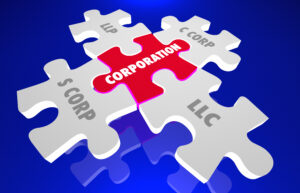High Property Taxes Pushing Many New Yorkers to Relocate

Recently I posted a report that the number of wealthy individuals leaving Connecticut for more tax-friendly pastures has been increasing. It seems that Connecticut isn’t the only state that is facing this problem. According to a report in the Democrat and Chronicle, New York is also dealing with more people leaving due to high taxes; and it’s not just the wealthy.
Reportedly, 41 out of 50 upstate counties in New York saw their populations decrease between 2010 and 2015. The mass exodus it seems appears to be closely related to New York’s disproportionally high property taxes. One woman from New York, who moved to neighboring Pennsylvania, now enjoys a 60 percent decrease in her property tax bill. It dropped from $5,000 annually to just $2,000.
Despite the spin that some government officials are trying to put on the numbers, the fact is that between 2009 and 2014 the state took a hit of $22 billion in wealth, with $11 billion coming between 2012 and 2014. According to financial advisors, even though it’s a tough decision, for many the taxes savings are just too much to pass up. Combined with a slow economy the high property and income taxes leave many residents with no choice but to pack up for greener pastures.
Even many of the state’s retirees are starting to worry more about New York’s high property taxes, with 56 percent saying they are concerned about being able to pay these taxes in retirement, according to a report from the AARP. In fact, 55 percent of baby boomers reportedly said they fully expect that they will leave New York when they retire, and 66 percent of the Gen-X population said they are also considering doing the same.
http://www.democratandchronicle.com/story/news/local/2016/05/11/new-yorkers-leave-states-lower-taxes/84212658/
Tax S-corporation
Saving Taxes with an S Corporation An S corporation election allows the shareholders to preserve the benefit of limited liability for the corporate form while at the same time being treated as partners for federal income tax purposes. Ever wondered why so many small businesses operate as an S corporation? Simple. An S corporation saves…
Sec1045 Partnerships
Sec1045 Partnerships This document contains final regulations relating to the application of section 1045 of the Internal Revenue Code (Code) to partnerships and their partners. These regulations provide rules regarding the deferral of gain on a partnership’s sale of qualified small business stock (QSB stock) and a partner’s sale of QSB stock distributed by a…
Sec179 Businessequipment
Updated: 11/12/10 Most new business equipment can be either depreciated over its useful life or expensed immediately under Internal Revenue Code Section 179. The maximum deduction is based on the following schedule for the date in which the tax year begins. Each 1040, whether Single or Joint, is limited to one maximum. 179 expenses passed…
Sec1244 Small Business Stock Sales
Sec1244 Small Business Stock Sales Section 1244 of the Internal Revenue Code, the small business stock provision, was enacted to allow shareholders of domestic small business corporations to deduct as ordinary losses, losses sustained when they dispose of their small business stock. In order to receive this beneficial treatment, the Code prescribes specific requirements for:…



